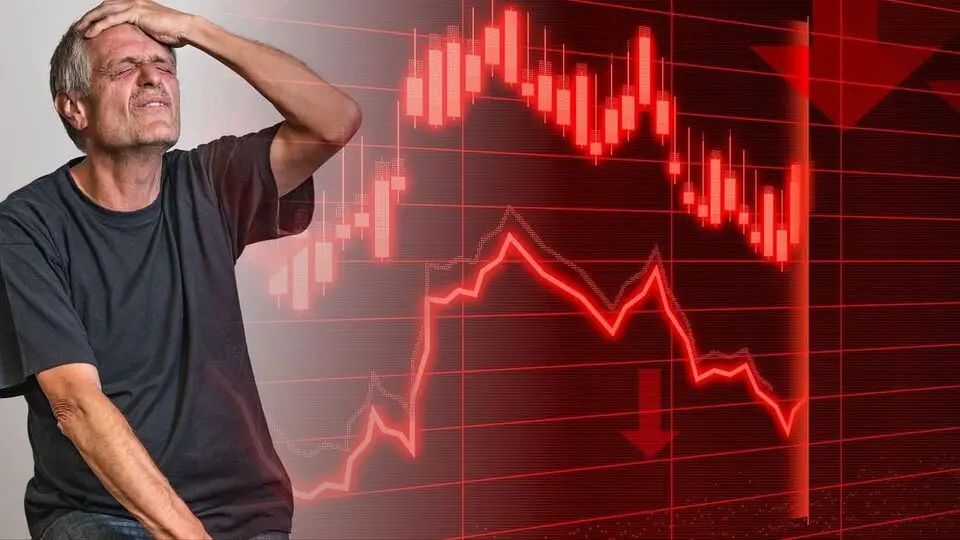The Indian stock market suffered significant losses in the early trade on Monday, February 3, with the Sensex falling over 700 points and the Nifty 50 plunging to a level below 23,250 amid weak global cues.
Sensex opened at 77,063.94 as against its previous close of 77,505.96 and slipped over 700 points to the level of 76,791.09. The Nifty 50 opened at 23,319.35 against its previous close of 23,482.15 and plunged by a per cent to 23,246.55.
The selloff was sharper in the mid and small-cap segments as the BSE Midcap and Smallcap indices plunged over one per cent each.
Around 11.15 AM, the Sensex was 418 points, or 0.54 per cent, below the 77,100 level and the Nifty 50 was 160 points, or 0.64 per cent, down at 23,337.
The overall market capitalisation of the BSE-listed firms dropped to nearly ₹419 lakh crore from ₹424 lakh crore in the previous session, making investors lose about ₹5 lakh crore.
- Weak global cues
The Indian stock market reacted to weak global cues. Major Asian markets fell on Monday after US President Donald Trump announced tariffs on Canada, Mexico and China, raising concerns about a broad trade war that could impact global economic growth. Japan’s Nikkei and Korea’s KOSPI fell 3 per cent each.
“Despite an excellent budget, the market will be under pressure from the Trump tariffs and the heightened global uncertainty that these ‘initial rounds of tariffs’ have triggered,” said V K Vijayakumar, Chief Investment Strategist at Geojit Financial Services.
Despite an excellent budget, the market will be under pressure from the Trump tariffs and the heightened global uncertainty that these ‘initial rounds of tariffs’ have triggered,” said V K Vijayakumar, Chief Investment Strategist at Geojit Financial Services.
- Trump tariff hits market sentiment
As widely reported by the media, US President Donald Trump slapped Canada and Mexico with 25 per cent duties. A 10 per cent levy has also been imposed on imports from America’s biggest trade partner, China. Retaliatory tariffs are underway.
Experts believe Trump’s tariff policy could unleash a tariff war which could derail the global economy.
“It is important to understand that the 25 per cent tariffs imposed on Mexico and Canada are to punish them for issues like immigration and illicit trade in fentanyl. Trump may use tariffs against other countries again on non-trade issues. China’s response to the 10 per cent tariffs has been more responsible. For now, they have not reacted like Mexico and Canada by imposing tariffs on imports from the US. Instead, they are moving the WTO against the US action,” said Vijayakumar.
- Sharp jump in dollar index; rupee hits record low
The Indian rupee opened at a record low on Monday, breaching 87 per US dollar for the first time. The dollar witnessed strong gains against many of its peers after Trump imposed sweeping tariffs on Canada, Mexico and China.
“The spike in the dollar index to above 109.6 will trigger more selling by FIIs (foreign institutional investors), putting the market under pressure,” said Vijayakumar.
- Caution ahead of RBI MPC
With the Union Budget over, all eyes are on the outcome of the Reserve Bank of India’s (RBI) Monetary Policy Committee (MPC) meeting.
Finance Minister Nirmala Sitharaman announced major changes on the income tax front aimed at boosting consumption. Experts expect the RBI to offer further relief to consumers by cutting rates by 25 bps.
- Unabated foreign capital outflow
Relentless selling by foreign institutional investors (FIIs) has been a major driver of the market downturn since October.
FIIs have been consistently offloading Indian equities since October 2024, weighing heavily on investor sentiment. As a result, the Nifty 50 has recorded monthly declines since then.
Between October 1, 2024, and February 1, 2025, FIIs have dumped Indian stocks worth nearly ₹2.7 lakh crore, exacerbating the market’s downward trajectory.
Stretched valuation of the Indian stock market, weak quarterly earnings and rising US dollar and bond yields have been driving foreign investors away from the Indian market since October.



